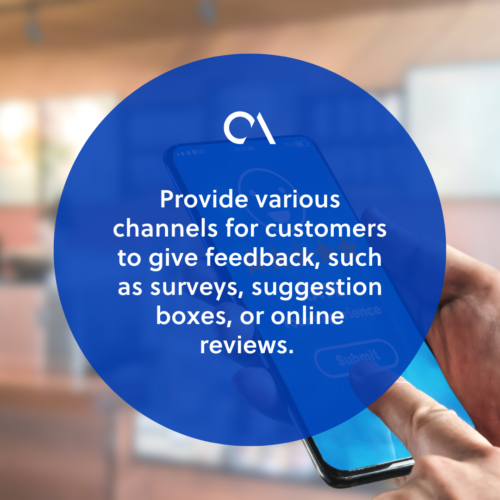Customer attrition: Causes and strategies for retention

Retaining customers is crucial for a business to thrive and boost its earnings. Customers who feel they aren’t valued tend to go, leading to an increased attrition rate.
Let’s explore the concept of customer attrition. This article will provide a straightforward explanation of what it means and discuss simple ways to reduce it.
What is customer attrition?
Attrition, or churn, happens when customers stop buying from or engaging with a company. This leads to lower revenue and higher costs to acquire new customers.
In simple terms, customer attrition is the loss of a customer or client in the company.
Based on a survey conducted by Exploding Topics, the media and professional services sectors have the highest customer retention rate of 84%. However, the hospitality, travel, and restaurant industries have only a 55% rate.

How a customer attrition rate affects businesses
Business revenue depends on retaining customers. Customer attrition can naturally impact businesses in two ways:
- Financially. Losing customers means losing revenue, reducing sales, and potential profit loss.
- Customer perception and brand reputation. Customer churn due to poor customer service or product dissatisfaction can harm a business’s reputation. Negative reviews can also affect attracting new customers.
Causes of customer attrition
Businesses should focus on these factors to minimize customer attrition. Here are the common reasons why customers leave a brand:
Poor customer service
Customers are more likely to stop doing business with a company if they receive inadequate support or face long wait times. A bad customer service experience can leave them feeling unappreciated and dissatisfied.
Product/service dissatisfaction
Unsatisfied customers may choose another company because of problems with product or service quality, functionality, or performance.
This dissatisfaction can result from defects, missing features, or the product not meeting their specific needs or expectations.
Price sensitivity
Price-sensitive customers may switch to cheaper alternatives. If a company increases prices without adding value, they often look for better value elsewhere.
Lack of personalization
Customers value personalized experiences. They choose brands that understand their preferences and needs.
Customers may feel unimportant and leave when businesses don’t customize their interactions and offerings.
Changing needs
Customer preferences can shift due to different circumstances or new choices. If a business fails to adapt or offer appropriate solutions, customer loyalty is unliekly.
Consumers ussualy end up shopping around and choose competitors that better meet their current needs.
Customer attrition: Strategies to avoid customer churn
Businesses can implement strategies to foster loyalty and build strong customer relationships. Here are some effective methods to keep customers and reduce attrition:
1. Improve customer service
Prioritize exceptional service by training employees, resolving issues promptly, and responding to customer needs and inquiries. Make customer satisfaction a top priority throughout their entire journey.
2. Enhance product/service quality
Churned customers are unlikely to come back. This is why businesses must continuously improve products or services by gathering customer feedback and making necessary enhancements.
Meeting customer expectations and delivering value is vital for retaining their business.
3. Implement customer feedback mechanisms
Provide various channels for customers to give feedback, such as:
- Surveys
- Suggestion boxes
- Online reviews
Listen carefully to what they have to say and use these customer data to make improvements throughout the organization.
This shows that their opinions are valued, which helps build a stronger customer relationship as it fosters a good customer experience.

4. Loyalty programs and incentives
Businesses can create loyalty programs to keep customers loyal. These programs may offer rewards like discounts, special offers, points, or other benefits for existing customers who keep choosing their business.
5. Personalization and customization
Boost customer relationships by customizing their experience. Use customer information to create personalized messages, offers, and interactions.
This shows you understand and care about their needs, encouraging loyalty to your business.
6. Regular communication
Stay connected with customers via emails, social media, or personalized messages. Inform them about new products, promotions, and events.
Regular communication keeps them interested and reminds them about your business.
7. Proactive customer outreach
Stay in touch regularly with consumers to check on them, offer assistance if needed, or share important updates. Caring about their needs strengthens your relationship and makes customers feel valued and supported.
8. Build a community
Build an online community using forums, social media groups, or events where customers can connect, share experiences, and support each other. This creates loyalty and a sense of belonging to something unique.
9. Improve the onboarding process
Ensure a smooth start for new customers by providing clear instructions, guidance, and support. Help them understand how to use your products or services effectively.
A positive beginning leads to lasting customer happiness.
10. Measure customer satisfaction
Track customer satisfaction with surveys, NPS, or other measures. Identify areas for improvement and address customer issues.
Monitoring satisfaction helps avoid losing customers and improve your business.
Reduce customer attrition for business success
To avoid high customer attrition rates and retain customers, businesses must build strong connections by offering exceptional customer service and high-quality products or services.
Companies can achieve long-term success and sustainable growth by implementing effective customer retention strategies.
Consistently exceeding customer expectations is a key recipe for success.







 Independent
Independent




